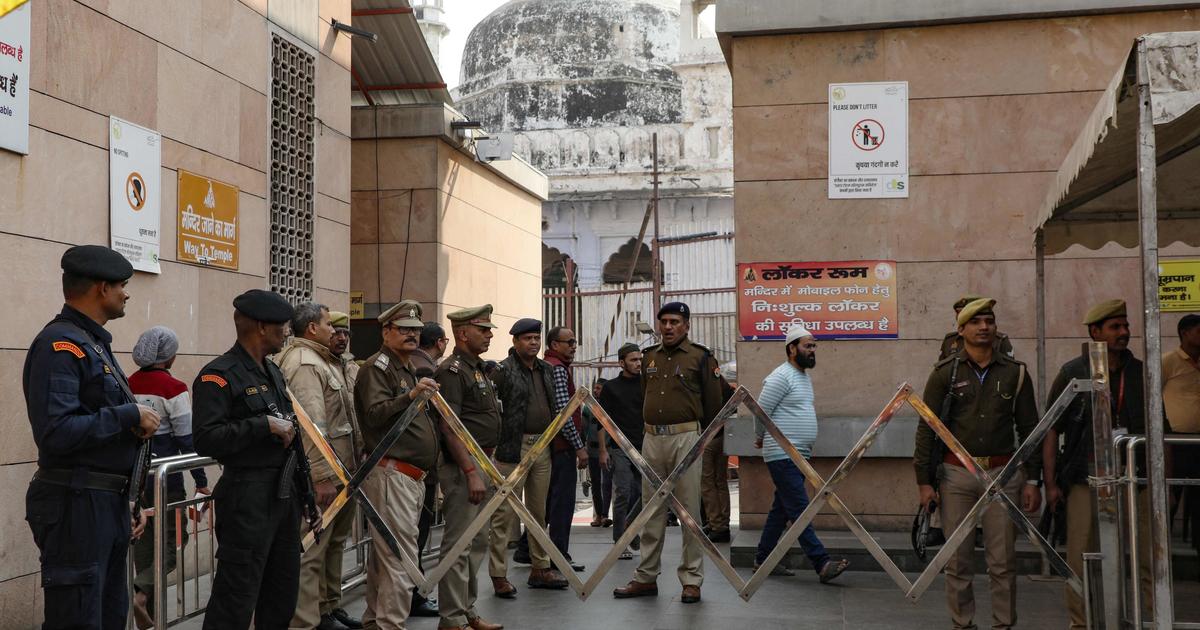Ten days after the inauguration of a Hindu temple in Ayodhya, on the site of a mosque razed in 1992, the holy city of Varanasi (formerly Benares) finds itself at the center of interfaith quarrels.
A local court on Wednesday gave permission to Hindu worshipers to pray inside the Gyanvapi mosque, and asked authorities to make arrangements within the next seven days to ensure they can worship.
This sanctuary, built in the 16th century, had been reserved for Muslims only for thirty years.
In 1993, the head of the Uttar Pradesh administration took the decision to seal the basement, where a Hindu priest and his family had resided until then.
One of his descendants today claims that his ancestor organized prayers there.
Before the Varanasi court, he invoked this family connection to claim the right to access the site as well as to exercise his religion there.
One of the representatives of the mosque committee, SM Yaseen, counters that there is no evidence that worship was celebrated there.
But a survey carried out in 2023 by the government archaeological agency supports the applicants' request.
The study carried out on the Gyanvapi site maintains that the mosque was built in the 16th century, on the remains of a Hindu temple.
Conflicting claims
Predictably, the judicial decision generated contrasting reactions.
It was received very favorably by Hindu fundamentalists.
Alok Kumar, president of Vishva Hindu Parishad, an ultranationalist organization, said the decision “
fills the hearts of all Hindus with joy.”
» On the Muslim side, several organizations have expressed their disagreement.
The mosque committee announced an appeal to challenge the verdict.
But there is no room for optimism.
“
One thing we are sure of is that we can no longer expect justice for Muslims in this country
,” SM Yaseen told
The Economic Times
.
Some Muslim organizations draw a parallel with the “Hindu Jerusalem”, newly built and inaugurated in Ayodhya.
This new sanctuary is located at the place where the divinity Rama was born, according to a sacred text of Hinduism.
It was built on the former site of the Babri mosque.
Built in the 16th century under the Mughal Empire, it was destroyed in 1992 by a Hindu mob, leading to interfaith riots which caused the deaths of two thousand people.
Conflicting claims around religious shrines are increasing in India.
In New Delhi, the Qutub Minar minaret, erected in the 12th century and listed as a world heritage site, is at the heart of a controversy between Hindus and Muslims.
In 2017, even the Taj Mahal was criticized by the new culture minister of Uttar Pradesh.
He was, in his eyes, too Muslim and not Hindu enough.

